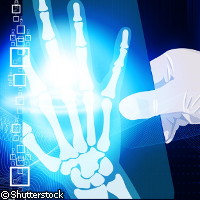CAALYX project takes medical innovation to new heights
Social changes and a growing ageing population call for innovative solutions. Enter the EU-funded CAALYX ('Complete ambient assisting living experiment') project, whose partners have successfully developed a prototype system comprising a home monitoring system, a mobile roaming monitoring system and a caretaker centre. This system will be particularly beneficial for the elderly and patients living at home. The CAALYX team has already launched two follow-up projects to help bring the technology to the market. CAALYX received more than EUR 1.8 million in funding under the EU's Sixth Framework Programme (FP6). Keeping an eye on people in need, especially the elderly, as well as providing personalised care and user-friendly technology, is what the CAALYX team is after. 'In our ageing societies, it is essential that we provide solutions to increase the time that people can stay in their familiar surroundings before having to go to a care facility,' explained Manuel Escriche of Telefónica Investigación y Desarrollo in Spain, the coordinating body of CAALYX. 'The prototype we developed consists of a home monitoring system, a mobile roaming monitoring system and a caretaker centre.' The mobile system is able to collect five different vital signs and can detect falls. Data is transmitted to a caretaker centre where it can be accessed by doctors, caretakers or family members according to the individual circumstances. Global Positioning System (GPS) technologies are used to help locate elderly people in case of emergency. The partners point out that a number of features of the CAALYX 'Ambient Assisting Living' (AAL) solution are not typical for this type of system. All patient information is encrypted, and despite the continuous monitoring, privacy is maintained. 'The information from the GPS tracking system, for example, cannot be accessed by anyone under normal, everyday circumstances,' Mr Escriche said. 'The data are only released if there is a medical emergency, allowing the person to be detected quickly.' Another unique feature of the CAALYX prototype is its high usability, according to the project coordinator. 'Solutions like this have to be as self-explanatory as possible. And we also have to take into account that many elderly people are not as capable with their fingers as young people,' Mr Escriche added. 'This makes it difficult to use devices with small buttons, for example.' In order to get past this problem, the CAALYX partners decided to use the television as a communication interface for video conferences with medical staff and family members, while an adapted version of the Nintendo Wii controller runs the home system. The system also allows doctors to determine which vital signs should be measured and identify the 'right thresholds for health alerts', Mr Escriche said. The thresholds are applied in smart mobile phones, developed by the Institute for Systems and Computer Engineering of Porto (INESC Porto) from Portugal. Finally, thanks to new technology developed by the Ireland-based University of Limerick, CAALYX monitors mobility and detects falls and ensures that medical help is sent to the user as quickly as possible. Ultimately, the CAALYX partners aim to improve their technology further and launch their products on the market.



